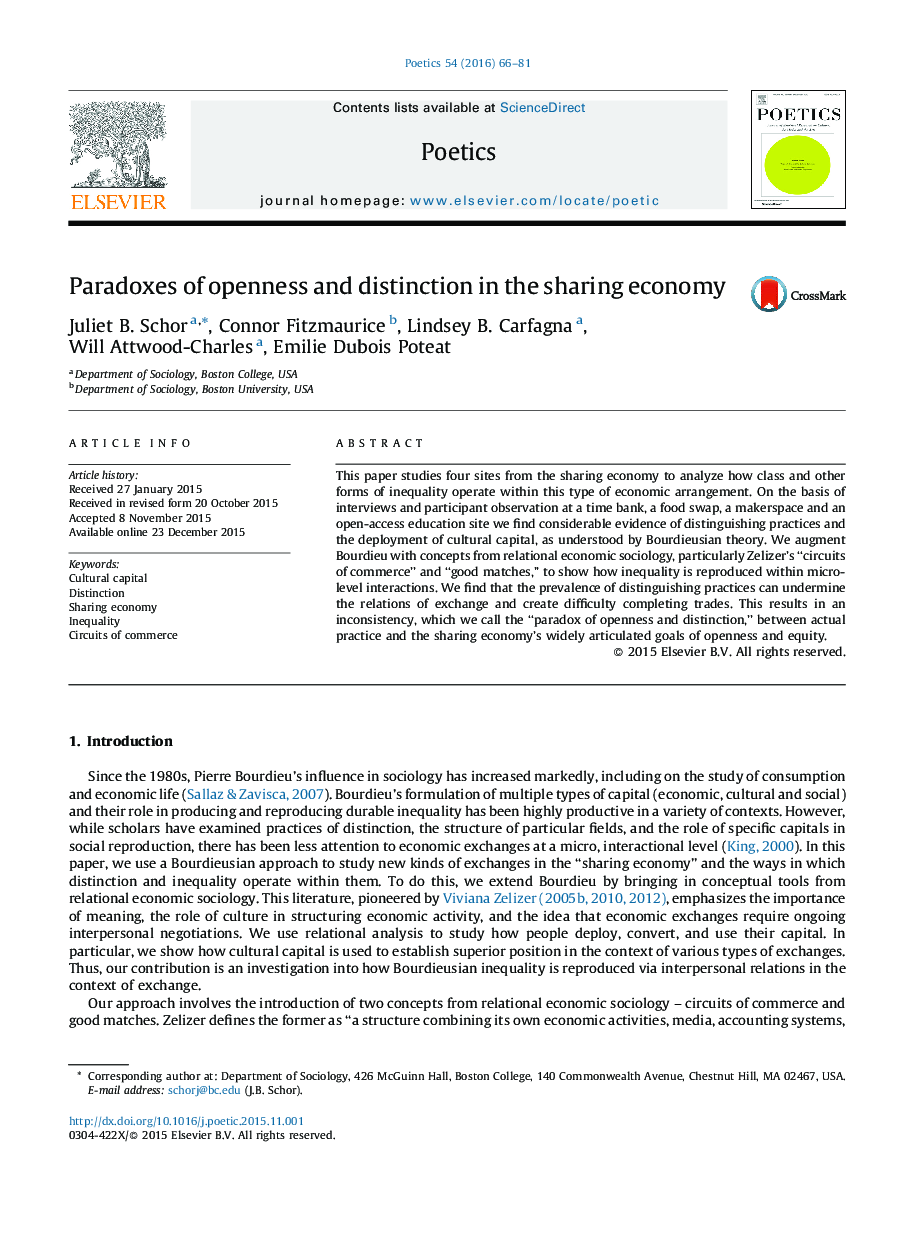| Article ID | Journal | Published Year | Pages | File Type |
|---|---|---|---|---|
| 1128250 | Poetics | 2016 | 16 Pages |
•An original account of how micro-level exchange relations in a Bourdieusian consumption field reproduce inequality.•The first study of inequality in Zelizer's circuits of commerce.•Four new sharing economy circuits aim to construct relatively egalitarian economies.•Participants in all four sites deploy cultural capital via distinguishing practices.•Distinguishing practices undermine relations of exchange and transaction volume.
This paper studies four sites from the sharing economy to analyze how class and other forms of inequality operate within this type of economic arrangement. On the basis of interviews and participant observation at a time bank, a food swap, a makerspace and an open-access education site we find considerable evidence of distinguishing practices and the deployment of cultural capital, as understood by Bourdieusian theory. We augment Bourdieu with concepts from relational economic sociology, particularly Zelizer's “circuits of commerce” and “good matches,” to show how inequality is reproduced within micro-level interactions. We find that the prevalence of distinguishing practices can undermine the relations of exchange and create difficulty completing trades. This results in an inconsistency, which we call the “paradox of openness and distinction,” between actual practice and the sharing economy's widely articulated goals of openness and equity.
